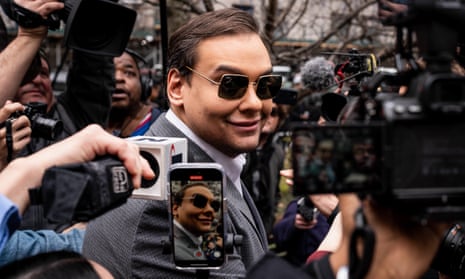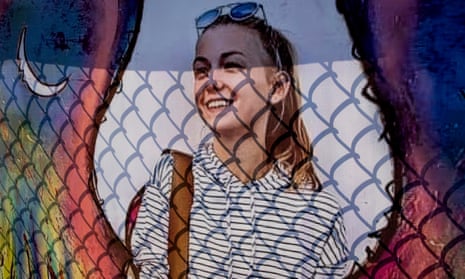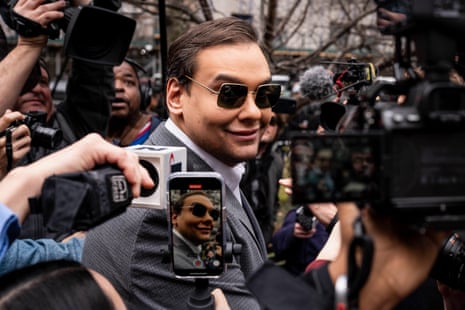Netflix series Transatlantic starring Corey Michael Smith (center) as Varian Fry. Credit: Netflix
When the World War II drama Transatlantic began airing on Netflix earlier this month, series co-creator Anna Winger faced questions about its many historical inaccuracies and inventions. This, as Winger acknowledged in the Times of Israel, is “strongly fictional.”
Transatlantic tells the story of American journalist Varian Fry (Corey Michael Smith) and his efforts under the Committee of Emergency to help artists, intellectuals and anti-Nazi refugees – both Jews and non-Jews – to flee from Vichy, France. .
Pushing back resistance from fellow countrymen and infuriating officials with its refusal to follow the rules, Fry's operation ultimately helped save 2,000 people. Among the European intelligentsia rescued were the Russian modernist Marc Chagall, the French surrealist André Breton, the German artist Max Ernst, the French artist Marcel Duchamp, and the Lithuanian cubist sculptor Jacques Lipchitz. As many arrived in the US, making New York a cultural center, Fry contributed to their profound influence on American culture.
Transatlantic is based on Julia Orringer's novel Flight Portfolio – which itself is a highly fictionalized account of Fry's operation – and contains inventions of his own. More than one reviewer has compared the colorful adventures of Transatlantic to vintage British sitcom Allo Allo. Some of Fry's key accomplices on the Emergency Committee are reinvented, including heiress Mary Jane Gold and German economist Albert Hirschman (played by Gillian Jacobs and Lucas Englander, respectively), while other associates such as Miriam Davenport, who played key the role, along with Fry, are completely omitted. Fry also has a fictitious gay affair with a Jewish resistance fighter.
Anna Winger defended the transatlantic dramatic change during an interview with CNN. “This is not a history lesson, this is not a documentary,” Winger said. “It's a TV show.” Winger said they “wrote into gray areas” and “imagined the inner life” of their characters. She added: “For me, we stayed true to the spirit of history.”

Outspoken critics of the series include Sheila Isenberg—author of Varian Fry's biography Our Hero—and Pierre Sauvage, documentary filmmaker, lecturer, and founder of the Varian Fry Institute. Sauvage's refugee Jewish parents sought help, albeit unsuccessfully, from Fry. Sauvage has been working for several years on a documentary about Fry's mission, The Year That Mattered, which he hopes will be released next year. Sauvage corresponded with Winger when she wrote the series in 2020 and warned that showing Fry distracted from his mission would “destroy the memory of a great man.”
Changing historical events is hardly new – and often necessary when real-life events turn into streamlined narrative fiction—but Transatlantic feels more like a two-star farce than a factual basis.
Should Fry's mission — a little-known tale of World War II heroism — be more accurately told now that many viewers will see it for the first time on Netflix? Does he deviate so far from reality that he cannot grasp the inherent truth of Varian Fry?
“The core loyalty is to make a good movie or series. This is understandable,” says Pierre Sauvage. “The question is, do you care what really happened? And are you looking for effective dramatic ways to convey what happened? He adds: “You can't catch the spirit if you don't know what happened.”
Varian Fry was born in New York in 1907 and graduated from Harvard. An art lover, he is described as distinguished, foppish, and highly intelligent.
 Varian Fry in 1967. Credit & Copyright: Getty
Varian Fry in 1967. Credit & Copyright: Getty
In 1935, Fry traveled to Berlin, where he witnessed how the Nazi youth pursued a man in a cafe, who turned out to be a Jew. The Nazis pierced the man's hand with a dagger. This incident, according to Mary Jane Gold, opened Fry's eyes to the horrors unfolding in Nazi Germany.
After the fall of France in June 1940, Fry was among several Americans alarmed by Article 19 of the French armistice. The article ordered the authorities of Vichy France to “hand over on demand” all Germans living in France, a ruling that probably extended to any subversives, agitators and freethinkers who could be sent back to Nazi Germany.
Fry attended a dinner in New York and, along with other interested Americans, formed the Emergency Rescue Committee. The committee had rudimentary support from First Lady Eleanor Roosevelt.
Fry went to Marseille in August 1940. He had $3,000 bills taped to his leg, as well as a list of 200 artists and intellectuals threatened by the Nazis.
Transatlantic attempts to stage their own Casablanca moments—especially the deplorable goodbye between lovers Mary Jane Gold and Albert Hirschman (who were not lovers in real life)—although Sauvage described how Marseille, the last free port in Europe, was like the real Casablanca. Jews and anti-Nazi refugees went there to try to escape.
 Fictional Lovers: Lucas Englander as Albert Hischmann and Gillian Jacobs as Mary Jane Gold in Transatlantic. Credit & Copyright: Anika Molnar
Fictional Lovers: Lucas Englander as Albert Hischmann and Gillian Jacobs as Mary Jane Gold in Transatlantic. Credit & Copyright: Anika Molnar
As seen in the series, Fry's operation was partly performed from his room at the Splendide Hotel. The drama reimagines the hotel, where African resistance fighters disguise themselves as a concierge and bellboy, and menacing Gestapo officers suddenly appear as hotel guests. The operation was also carried out at the office of the American Rescue Center. Approximately 20,000 refugees made contact. Fry worked punitive long hours helping the almost endless line of refugees. In a letter to his wife, Eileen, Fry described how he received “six to 12 phone calls an hour” and “25 letters a day”. He added: “Sometimes refugees come straight into my bedroom without knocking or announcing themselves.”
Fry, according to Sauvage, was “completely dedicated” to saving people. “Varian was such an interesting character,” says Sauvage. In contrast, his portrayal in Transatlantic is bookish and undynamic. Mary Jane Gold is the energy of the series. The show is doing Fry a disservice. “The real story of Varian Fry in Marseille is the story of his evolution,” says Sauvage. “Arriving in Marseille, having no idea how to handle the situation, making mistakes, gradually rising to the top, he does not develop at all in the series … Another thing is that he was great. He was a brilliant intellectual, he was a fantastic writer, he also had a brilliant understanding of what needs to be done.”
Fry assembled a multinational team of humanitarians and associates – Miriam Davenport and Mary Jane Gold, as well as a number of European refugees such as Albert Hirschman (turned into a dreamy transatlantic freedom fighter) – who helped the mission until it was time to flee. themselves. On the face of it, Fry's installation was one of several outright relief operations—an uphill administrative battle over visas. But there were covert methods used in Fry's operation.
“He had to make a number of decisions,” says Sauvage. “He had to decide if he was going to do something illegal. He certainly did not go to France with the intention of doing something illegal, but then, of course, he quickly realized that in such circumstances you are doing what is necessary.
 Real Mary Jane Gold c. 1940–1945 Credit: wikimedia commons
Real Mary Jane Gold c. 1940–1945 Credit: wikimedia commons
They bribed officials and dealt with Marseille's growing black market. Jewish resistance husband and wife Lisa and Hans Fittko smuggled refugees to Spain across the Pyrenees, and Jewish Austrian political cartoonist Bill Spira forged passports.
(Both Fitko and Spira are featured in Transatlantic, although Lisa Fitko's affair with a West African freedom fighter is a fiction of the series. Sauvage was friends with the real Fittko, who died in 2005. “Lisa Fitko's niece is horrified [from image],” he says.)
Fry and his team greatly frightened the US State Department and the US Consulate. Consul General Hugh S. Fullerton disapproved of Fry's activities and believed that Fry would soon go to prison. Fry's only real ally in the consulate was Vice Consul Hiram “Harry” Bingham (played by Luke Thompson in Transatlantic). Fry called Bingham a “comrade in arms.”
Fry fell out with other relief organizations and criticized members of the Homeland Rescue Committee (“These Boobs in New York”). The State Department put pressure on officials, and Fry was told to return home. They even refused to renew his passport. “This work is like death—irreversible,” Fry wrote to his wife. He added: “We started something we can’t stop… We have allowed hundreds of people to become addicted to us. We can't say now that we're bored and we're going home.”
The Treasurer of the Committee for Emergency Situations said: “He managed to extremely piss off American officials.” (Which sounds like a compliment.) Even Mrs. Roosevelt didn't support his methods.
 Gillian Jacobs as Mary Jane Gold, Cory Michael Smith as Varian Fry and Amit Rahav as Thomas Lovegrove in Transatlantic Credit: Netflix.
Gillian Jacobs as Mary Jane Gold, Cory Michael Smith as Varian Fry and Amit Rahav as Thomas Lovegrove in Transatlantic Credit: Netflix.
“Some people have complained that Fry's mission was an elitist one,” says Sauvage, “because he started mostly by trying to rescue prominent artists and intellectuals. It's true, but I think you can only save a certain number of people. You cannot save everyone. He saved the people he felt were the most vulnerable—the people he cared about. But obviously that included a choice in terms of rejection.”
Sauvage's parents were among those who were turned down by Fry. Instead, they went to Le Chambon-sur-Lignon, a village in the mountains in south-central France. The village became a refuge for Jews and others, with a policy of rejecting no one. Pierre Sauvage was born here before the end of the occupation.
One of the real-life locations depicted in Transatlantic is the Air-Bel Villa, a hideout for Fry's crew and their rescued freethinkers. However, in the series, Fry's fictional lover Thomas Lovegrove (Amit Rahav) rents the villa. This case is Transatlantic's most egregious invention.
Portfolio of Flight, from which the series is loosely adapted, also depicts Fry having a different gay romance, but with a different man. Following the publication of the novel in 2019, controversy arose about Fry's sexuality. His son, James D. Fry, wrote in the New York Times to clarify: “My father was indeed a closeted homosexual.” For Sauvage, the issue is not whether Fry was gay, but how the romance in the Transatlantic detracts from important facts. “The problem is that in Marseille he was absolutely obsessed with only one thing – doing his job. Anything that portrays him otherwise is actually wasting an opportunity to convey something important.”
 Cory Michael Smith plays war hero Varian Fry in Transatlantic Credit: Netflix
Cory Michael Smith plays war hero Varian Fry in Transatlantic Credit: Netflix
Transatlantic presents Fry's efforts as one major escape: 257 refugees were sent to Martinique by boat. Martinique was a real destination, but there wasn't a single dramatic trip there. “It's like Schindler's List,” says Sauvage. “In real life, people were helped piecemeal. They were helped one by one. They were put on boats. There was no such dramatic event when all these refugees arrived at the Air-Bel and headed for this boat.”
Other fictions include a plot in which Mary Jane Gold goes undercover for British intelligence, helping prisoners of war escape. from the Camps de Miles, and an African resistance cell that allies itself with Hirschman.
In the series, Gold, who was a close friend of Pierre Sauvage in real life, funds Fry's mission. It is true that Gold, the daughter of a wealthy radiator manufacturer, helped subsidize production, albeit partially. Money also came in from New York, Washington, and elsewhere.
The real Gold had a condition for her money. She insisted that her “Gold List” be used to help non-celebrity refugees, such as labor leaders and vulnerable people – people the US government didn't care about, but the Nazis did. (Some of the famous refugee artists – at their peril – thought they were too famous to cause serious harm.)
Mary Jane Gold was torn between a mission and an affair with a French gangster – history. which is not in Transatlantic. Anna Winger said she wanted her version of Gold to have more “agency”, which, like the inclusion of West African resistance fighters who were not in Marseille with Fry's team, speaks more of a contemporary attitude towards representation than actual historical fact.
 Mary Jane Gold (played by Jillian Jacobs) has more 'agency' in the Netflix series. Credit & Copyright: Netflix
Mary Jane Gold (played by Jillian Jacobs) has more 'agency' in the Netflix series. Credit & Copyright: Netflix
The show's highlight is US Consul General in Marseille Graham Patterson (played by Corey Stoll), a frontier collaborator. More than just the skilful fiction of real-life Consul General Hugh S. Fullerton, the character epitomizes a broader political background: Fry's hawkish dealings with U.S. officials; American antisemitism; and America's apathy for European refugees.
Fry's story as a whole represents an important moment. “It was around this time that there was a major change in Nazi politics,” says Sauvage. “When Fry arrived in Marseille, the policy of the Nazis was to expel the Jews. They wanted to get rid of their Jews – they even sent them to France. By the time Fry is kicked out of France, the Nazis have already closed their doors and are keeping everyone inside. It was at the time when the Nazis changed their policy that Varian Fry's mission took place. [The change in policy, i.e. the Final Solution] happened, at least in part, because the world gave the Nazis the impression that they didn't care. It's important to highlight the actions of some Americans who really care.”
In the series, Fry eventually leaves Marseille while taking Marc and Bella Chagall to Lisbon – with Chagall paintings in the passenger seat, no less. “A strange touch,” says Sauvage. In fact, the Consul General put pressure on the Vichy police to get rid of Fry. In August 1941 he was arrested and deported. Returning to the United States, Fry blamed the “cowardly heart of the Consul General” for everything.
“He lived a pretty normal post-war life,” says Sauvage. Fry's widow, Annette (his second wife), told Sauvage, “People do great things in wartime, and then go out and live ordinary lives.” Varian Fry died of a cerebral hemorrhage in 1967 at the age of only 59. In 1996, Fry became the first American to be honored as Righteous Among the Nations by Israel's Yad Vashem, the World Holocaust Remembrance Center in Jerusalem. > Russian modernist Marc Chagall was rescued by Varian Fry. Photo: Hulton Deutsch
Does it make sense to radically fictionalize a story if it presents the story to a new audience? Will it interest people in what really happened? Anna Winger told the Times of Israel that she hopes the show will encourage viewers to Google the Emergency Committee.
For Pierre Sauvage, the cons outweigh the pros because on-screen storytelling is so powerful. “I'm not sure you can erase the influence of false history,” he says. “Stories have tremendous power. We connect to them. You can keep pointing out all the inaccuracies in the story, but the story is likely to linger in the mind of the viewer more than your correction.”
When a director or writer adapts a novel or comic book for the screen, the success of that adaptation is not absolute fidelity to every scene and plot point, but in capturing its spirit – in discovering the fundamental truth of the original story. The same, of course, applies to the dramatization of historical events.
“When you are dealing with a recent historical event,” Sauvage says, “and when you are dealing with something as complex and insidious as The Holocaust or the Nazi era, I think you have a big responsibility to not lead people in the wrong direction.”






























































Recent Comments